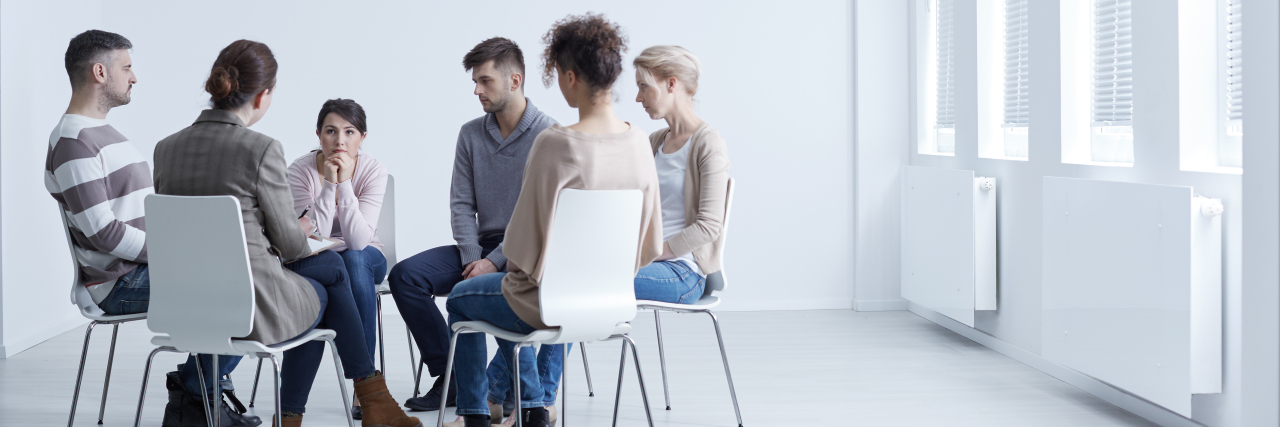Whether it be after in the hospital, an outpatient program or a public peer support group, these are some of the things that I figured out and people have taught me to get the most out of group therapy.
Of course, the hardest thing about group therapy is feeling safe enough to tell your deepest fears and problems to a group of people. I’ve been to group many times in different settings. Every new place makes me anxious. I’ll be anxious the next time I go to a new group even though I’ve already been many times. I am always worried about what other people in the group will think of my problems.
Everybody else is thinking the same thing. Most of the people there are having the same exact problems as me. Usually not for the same reasons, but the same problems.
There have been times I was just too scared or didn’t feel safe enough to talk about my problems. I wound up just leaving because there was no point in me being there. Group therapy is the place to tell other people your problems and never have anybody know about them. This is your chance to put it all out there, hear what people have to say, and get feedback on it. It’s easier said than done but it’s so worth it.
Usually, the first thing in group is everybody talking about the problems they’ve been having recently. The counselor or group leader will ask who would like to talk about their problems. Some days, I’ll speak up and go first. I don’t want to be the rude person who talks all the time, though if no one else speaks up, I will go first every day until somebody else does. I’m not going to miss my chance because other people aren’t feeling safe enough to tell their problems.
The next thing that’s going to happen is everybody talking about what you just said. That’s really rough. This is where you get ideas. Other people will tell you how they got past those problems. Be sure and take notes.
Not often, but at some point somebody is going to say something inappropriate. The counselors almost always shut that down immediately. That doesn’t mean it doesn’t hurt.
One time, I had a lady say my problems didn’t matter because I didn’t have a family or kids to support. She was wrong for saying that. It really hurt because I’d heard that so much in my life. People saying stuff like that was one of the things that led to me being there.
The first thing to remember is that they’re here because they’re having problems too. Second, whether it’s true or not, if something someone says hurts your feelings, you have a problem with it. If it was meaningless, it would not have hurt your feelings. Third, this is your chance to address it in a safe place.
The next thing to do in group is to listen to other people. Listening to other people’s problems helps you see into your own. Not only is it comforting knowing you are not alone, but you can see why they had them, and what they’re doing about them.
After everybody discusses everybody’s problems, the group leaders will start making presentations addressing those problems. Handouts and homework to fill out. Movies. Take notes and think of questions to ask after it’s done. Even if the presentation doesn’t apply to you, thinking through things is important. Thinking through other people’s problems helps you think through your own problems.
Just because group is over for the day doesn’t mean your day is done. There’s going to be homework. You’re going to be exhausted. All that thinking and emotions exhausted me more than a long day shoveling rock. It’s important to be prepared.
I usually get everything ready before I go to group in the morning. I prepare for time to do my homework and relax the rest of the evening. I have my dinner waiting for me. I’ve planned for quiet time. I have a pen and some paper. I have a movie or music ready. A nice hot bath to relax for the night.
These basics will get you going and make the most of your time in group therapy.
I hope your time in group works out well for you.
Getty Images photo via Katarzyna Bialasiewicz

